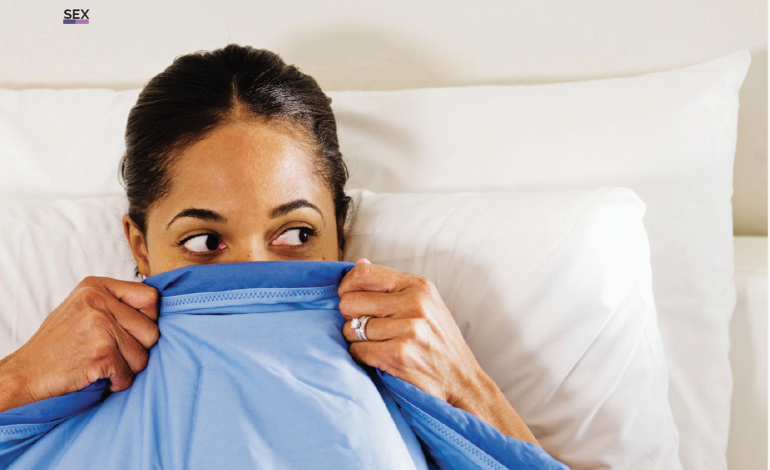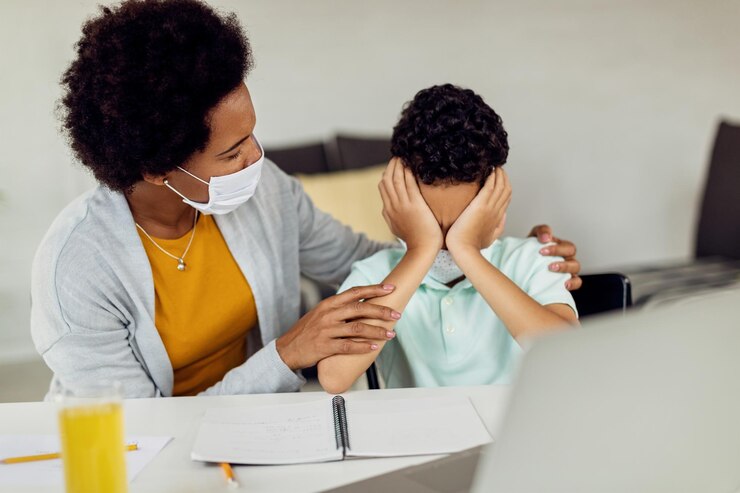Understanding sexual phobias

The fear of sex, also known as genophobia, is more than a simple dislike or aversion to sex. It is a condition that can cause intense panic or fear when sexual intimacy is attempted. Here is what you need to know about sex phobia.
The fear of sex is attributed to a number of factors including:
Vaginismus:This refers to a condition where the muscles of the vagina involuntarily clench up when vaginal penetration is attempted during sexual intercourse. This makes sex painful and in extreme cases, can make sex impossible. Such constant and severe pain can lead to fear of sexual intercourse.
Erectile Dysfunction (ED): This refers to difficulty in obtaining and sustaining an erection. Good thing is, it can be treated. It may lead to feelings of embarrassment, stress or even shame. Depending on the intensity of the feelings, one might become afraid of sex.
Past sexual abuse: Incidents such as child abuse or sexual abuse can cause post-traumatic sexual disorder (PTSD) and affect the way you view sexual intercourse.
Performance anxiety: Sometimes it is not sex that we actually fear. Some people are just nervous about whether they are good in bed. This can cause extreme psychological discomfort leading them to avoid sex.
Body shame or dysmorphia: Shame on one’s body, as well as being overly self-conscious about your body can negatively impact sexual satisfaction and cause anxiety. People with body shame see their bodies as flawed, even though others find them normal. They tend to avoid or fear sex due to the embarrassment it brings with it.
Physical concerns: Some people wonder if they will be able to perform due to a physiological condition. Others simply fear that sex will hurt. Well, fears that have a legitimate basis are not considered as phobias. However, others experience fears that are far out of proportion to the reality of the situation. If your fears are inappropriate to the current risk, you may have a phobia.
Personal, cultural and religious beliefs: Sex is still considered taboo inmany religions and societies. As a result, one may find it difficult trying to balance the past and the current beliefs leaving them to shy away from the act.
Symptoms of genophobia
It is important to note that fear reaction is triggered by the event or the situation that the person fears. Typical sexual phobia symptoms include:
An immediate feeling of fear, anxiety and panic when exposed to sexual intimacy or even the thoughts of sexual encounter.An understanding that the fear is extreme, but all the same, being unable to stop or minimize it.A worsening of fear if sexual encounter is not stopped.Avoidance of situations that lead to sex such as flirting and romance.Feelings of nausea, dizziness, having trouble breathing, heart palpitations or sweating when exposed to sex triggers.
Types of sex phobias
With the phobia of sex comes other specific phobias including:
Fear of intimacy
Also referred to as intimacy avoidance or avoidance anxiety. An individual with this phobia may interact normally with other people. The problem comes in when they realize that these relationships are becoming too intimate.
The risk factors for fear of intimacy often stem from childhood and the inability to securely trust parental figures, which eventually leads to attachment issues. Its symptoms range from having low self-esteem, trust issues, experiencing episodes of anger and having insatiable sexual desire.
The fear of intimacy doesn’t necessarily mean that you do not want intimate relationships. You may long for intimacy but you can’t seem to allow yourself that vulnerability. It is likely a defense mechanism where you do not allow yourself to get intimate with your partner because you don’t want to get hurt.
Fear of sexual perversion (paraphobia)
Some people fear that they are perverted while others fear or worry about the perversion of others. It is often rooted in cultural or religious upbringing. The symptoms of paraphobia range from irritational fear of sexual perversion, terror, dread or panic. A visit to your therapist could be of much help or rather, if you feel that your cultural or religious background may play a role in your fears, you may need to meet with a trusted religious advisor as an adjustment to mainstream therapy.
Fear of diseases (nosophobia)
This is the extreme or irrational fear of developing a disease. You may feel that sex is dangerous and never worth taking a small chance of infection. Exposure to sickness is a common cause of nosophobia. Sex carries the risk of numerous diseases, including HIV. Most people are able to balance this risk by using precautions such as condoms, monogamy and STDs/ STIs testing to bring the risk down to a personally acceptable level.
Factors that exacerbate your fears include exposure to high levels of media coverage about sexually transmitted diseases (STDs) and the risk of contracting them. Also having suffered traumatic health problems in the past or repeated exposure to people with serious illnesses comes to play. Nosophobia has also been connected to cardiovascular disorder, tuberculosis and cancer.
Fear of pregnancy (tokophobia)
Tokophobia is the fear of both pregnancy and childbirth. Women with this type of sexual phobia have a pathological fear of giving birth altogether. It is a specific type of phobia with symptoms ranging from sleep disturbances and panic attacks, to having nightmares. Women may sometimes avoid sexual activity out of the fear of becoming pregnant.
There are two types of tokophobia:
Primary tokophobia, which occurs in women who have never given birth.Secondary tokophobia, which occurs in women who have previously experienced pregnancy and birth.
Fear of being touched (haphephobia)
It can also be referred to as chiraptophobia. It affects all types of relationships but mostly those of a romantic nature. Many people with this phobia can form warm and tight bonds with others, although they may be worried that these bonds are at risk due to their inability to show physical affection.
The symptoms of this sexual phobia vary in severity, depending on the level of fear. Some people are able to:
Tolerate touch that they initiate or express permission for the partner to initiate.Over a long period of time build enough trust to overcome their reactions with one or two specific people.Uncomfortable with any form of touch.
Fear of vulnerability
Like the fear of intimacy, the fear of vulnerability is often tied to a fear of abandonment or the fear of engulfment. Most people are afraid that if they are themselves, their partners will not love them. This fear affects most relationships, especially sexually. Although vulnerability is the secret to intimacy, people with this fear are afraid of the vulnerability that comes with relationships. According to Geraldine Piorkowski, Ph.D. and author of Too Close for Comfort: Exploring the Risks of Intimacy, people fear vulnerability because they fear having their deepest desires trampled upon, rejected or fulfilled.
Fear of kissing (philemaphobia)
Also known as philematophobia, fear of kissing is usually tied to physical concerns such as concerns over bad breath or even germ phobia. It is common among young and inexperienced kissers who are afraid of doing something wrong. In such cases, the fear is generally mild to moderate and dissipates quickly as the person gains experience. This fear is particularly problematic because it can affect one’s ability to form romantic relationships. Besides fear of germs and bad breath, other causes of philemaphobia include fear of touch and fear of intimacy and vulnerability
Fear of the vagina (eurotophobia)
This is the fear of the female genitalia. One suffering from this fear would try to escape from women almost all the time. They find themselves very uncomfortable while hanging around a woman. This ultimately affects their sexual life. Some of the symptoms that could be observed in eurotophobia include extreme anxiety while being near a woman, a huge panic attack when exposed to female genitalia, rapid heart rate and abnormal behaviour due to extreme anxiety and fear levels.
Treating genophobia
In case of physical components such as vaginismus, treatment can be done accordingly. Be sure to see your physician since, if left untreated, it might lead to the fear of sexual intercourse.
Various types of physiotherapy can also be of help, including cognitive behavioural therapy (CBT). This is a type of psychotherapeutic treatment that helps patients to understand the thoughts and feelings that influence behaviours. It is generally short-term and during the course of treatment, people learn how to change destructive or disturbing thought patterns (sexual phobias) that have a negative influence on behaviour and emotions
A sex therapist can also be helpful with addressing sex phobias. The kind of therapy will depend largely on the underlying specific sexual phobia. Other alternatives include positive affirmation and visualisation.
This article was first published in the January 2020 issue of Parents.
READ OUR LATEST ISSUE HERE:




